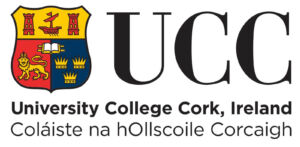MA in Archeology – Archaeological excavation
Key Points
The Master of Archaeological Excavation is a one-year taught course, offered full-time by the Department of Archeology. Excavation is central to the practice of archeology as an academic and professional discipline, with many employment opportunities in Ireland and abroad. This course will provide advanced training in the theory and practice of excavation, and specifically:
- Develop a critical understanding of the role of excavation in world archeology, with special reference to professional practice in Ireland.
- Teach research and organization skills appropriate to the design and execution of archaeological excavation projects to a high standard.
- combine academic knowledge and technical training in different areas of current practice, including pre-excavation study, excavation strategy and methods, and post-excavation analysis.
The course will provide a solid foundation for students who wish to develop a career in archaeological excavation or find employment in areas where a critical understanding of excavation is essential.
The master’s degree is designed to strike a desirable balance between classroom teaching and field training, covering academic areas and archaeological excavation techniques. The course includes five taught modules, a four-week training excavation and the presentation of a research thesis.
Program Structure
Modules (90 credits):
- AR6004 Research Design and Excavation Planning (5 credits)
- Excavation Strategy and Practice AR6005 (5 credits)
- AR6006 Post-excavation analysis and interpretation (5 credits)
- AR6007 Case studies in archaeological excavation (10 credits)
- AR6013 Archaeological survey and remote sensing (5 credits)
- AR6008 Training Excavation (15 credits)
AR6001 Dissertation (45 credits)
Course practices
The lectures are given over six months (October to March), with an average of six hours per week. You will attend additional computer lab practices in October and November, a two-day field study exercise in October, as well as a series of day trips in the following months. There is also mandatory attendance at a one-week training excavation in April and a five-week training excavation in May.
The courses taught are examined by continuous assessment, with a combination of essays, projects, class presentations, and fieldwork exercises. Formative excavation is assessed by project work, while a research thesis must be submitted at the end of the year.
Why choose this course
This is the only Master’s course taught in English in Europe that offers specialized training in archaeological excavation. The course addresses a significant demand for archaeologists to work in the commercial excavation sector.
Career opportunities
Upon completion of this course, you will be able to:
- Apply for Excavation Licenses in Ireland
- Conduct historical research and cartographic analysis prior to archaeological excavation.
- Examine archaeological sites prior to excavation, including surface mapping and geophysical prospecting
- Identify and organize the resources necessary to carry out an archaeological excavation.
- Design appropriate excavation strategies for different types of archaeological sites and different excavation circumstances.
- Develop the basic skills necessary to carry out an archaeological excavation.
- Work effectively as part of an excavation team and gain management skills
- Identify and evaluate the variety of investigations carried out in the post-excavation stage.
- Write preliminary and final excavation reports, as well as related specialist reports.
- Acquire specialized skills in computer science and information technology relevant to archaeological excavation.
- Collect excavation files
- Communicate the results of the archaeological excavation to a specialized and non-specialized public
- Design and implement conservation work related to the public presentation and long-term preservation of archaeological sites.
- Transfer a variety of critical learning and writing skills, as well as IT training and practical experience, to other areas of employment.
Admission requirements
You will have an honors bachelor’s degree in archeology or anthropology up to a second honors level from a recognized university or tertiary institution, or a higher diploma in archeology at an honors level 2H1, and will set up a formal interview to establish motivation, work experience and relevant expertise.
Statement additional / supplemental questions MUST also be completed during online application.
References are required from applicants who have not graduated from UCC in the last two years. Provide two letters of reference, one of which must be a previous employer or study supervisor. Stamped reference letters should be sent directly to the course director: Professor William O’Brien, Department of Archeology, University College Cork, Cork, Ireland.
Places to be offered based on a combination of academic qualifications, relevant experience and knowledge, and interview performance.
English requirements
All graduate applicants whose first language is not English must provide evidence of English language proficiency. Certain tests (eg, IELTS, TOEFL, and Pearson PTE) have a three-year time limit on their validity and will apply. English language tests must be taken no more than three years prior to the start of a program.
Please note that Secure English Language Test (SELT) scores must be obtained in a single session of the corresponding qualification (for example, IELTS and TOEFL). We will not accept a combination of individual component scores from multiple tests.
Applicants who are nationals of a country that, according to the UCC, is predominantly English-speaking, or who have a degree or equivalent qualification that was taught in a country that is considered predominantly English-speaking, will normally be assumed to have met the language requirements of the UCC. However, in some circumstances, applicants may be required to present evidence of an English language qualification to satisfy the college program entry requirements.
Learn more about our educational offer
Request your quote
An advisor will contact you by phone and email within the following hours


